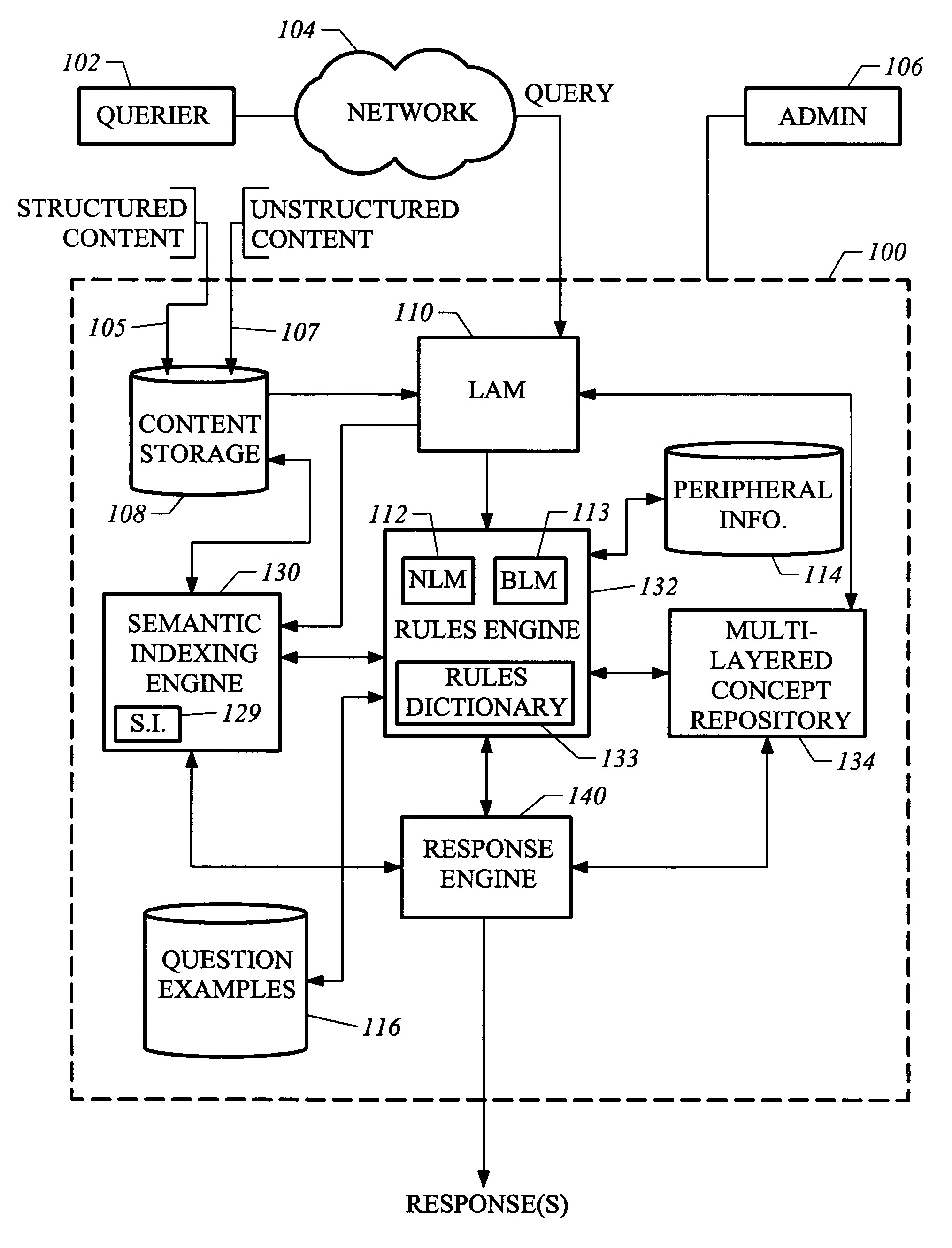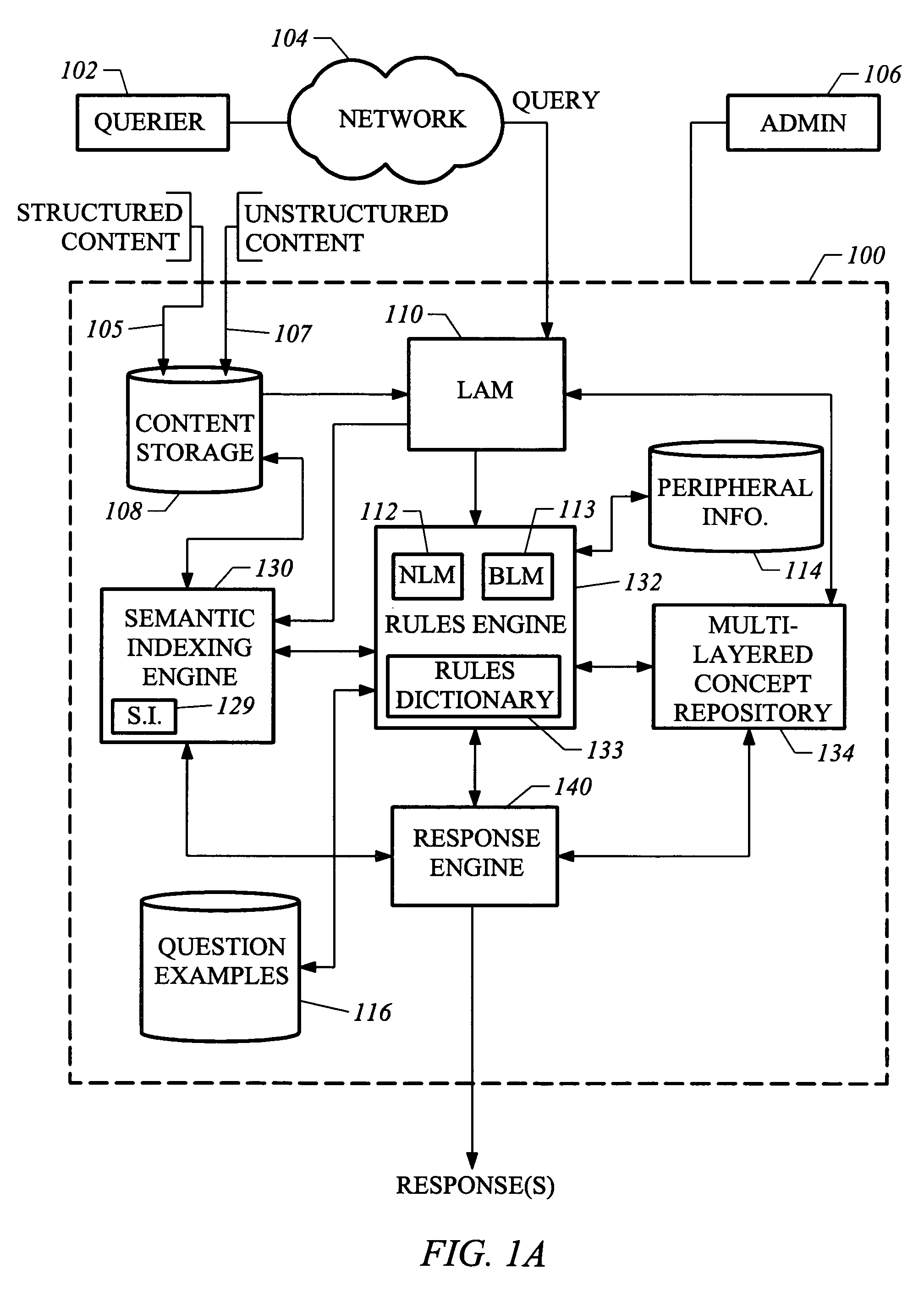Ontology for use with a system, method, and computer readable medium for retrieving information and response to a query
a technology of information retrieval and computer readable medium, applied in semantic analysis, instruments, computing, etc., can solve the problems of increasing the frustration and disappointment of users, unable to effectively respond to technology, and often overloading search mechanisms with many homogeneous sources of information, so as to achieve greater accuracy in responding.
- Summary
- Abstract
- Description
- Claims
- Application Information
AI Technical Summary
Benefits of technology
Problems solved by technology
Method used
Image
Examples
Embodiment Construction
[0027]FIG. 1A is a block diagram illustrating an exemplary information retrieval system (“system”) 100 for formulating a response to a query in accordance with an embodiment of the present invention. To formulate such a response, a querier 102 applies questions in natural language via a network 104 to system 100 (questions can include requests for information). Although querier 102 is typically a human interacting with a user interface of a computing device, (any computer having a processor and memory for executing program instructions) querier 102 can be any mechanism designed to solicit information, such as a computing device programmed to automatically form and submit queries to system 100. Network 104, which is optional, can be the Internet, a local area network (“LAN”), or any type of communications network capable of communicating data that represents both questions to and answers from system 100. Network 1004 can facilitate any known types of question-answering communications...
PUM
 Login to View More
Login to View More Abstract
Description
Claims
Application Information
 Login to View More
Login to View More - R&D
- Intellectual Property
- Life Sciences
- Materials
- Tech Scout
- Unparalleled Data Quality
- Higher Quality Content
- 60% Fewer Hallucinations
Browse by: Latest US Patents, China's latest patents, Technical Efficacy Thesaurus, Application Domain, Technology Topic, Popular Technical Reports.
© 2025 PatSnap. All rights reserved.Legal|Privacy policy|Modern Slavery Act Transparency Statement|Sitemap|About US| Contact US: help@patsnap.com



